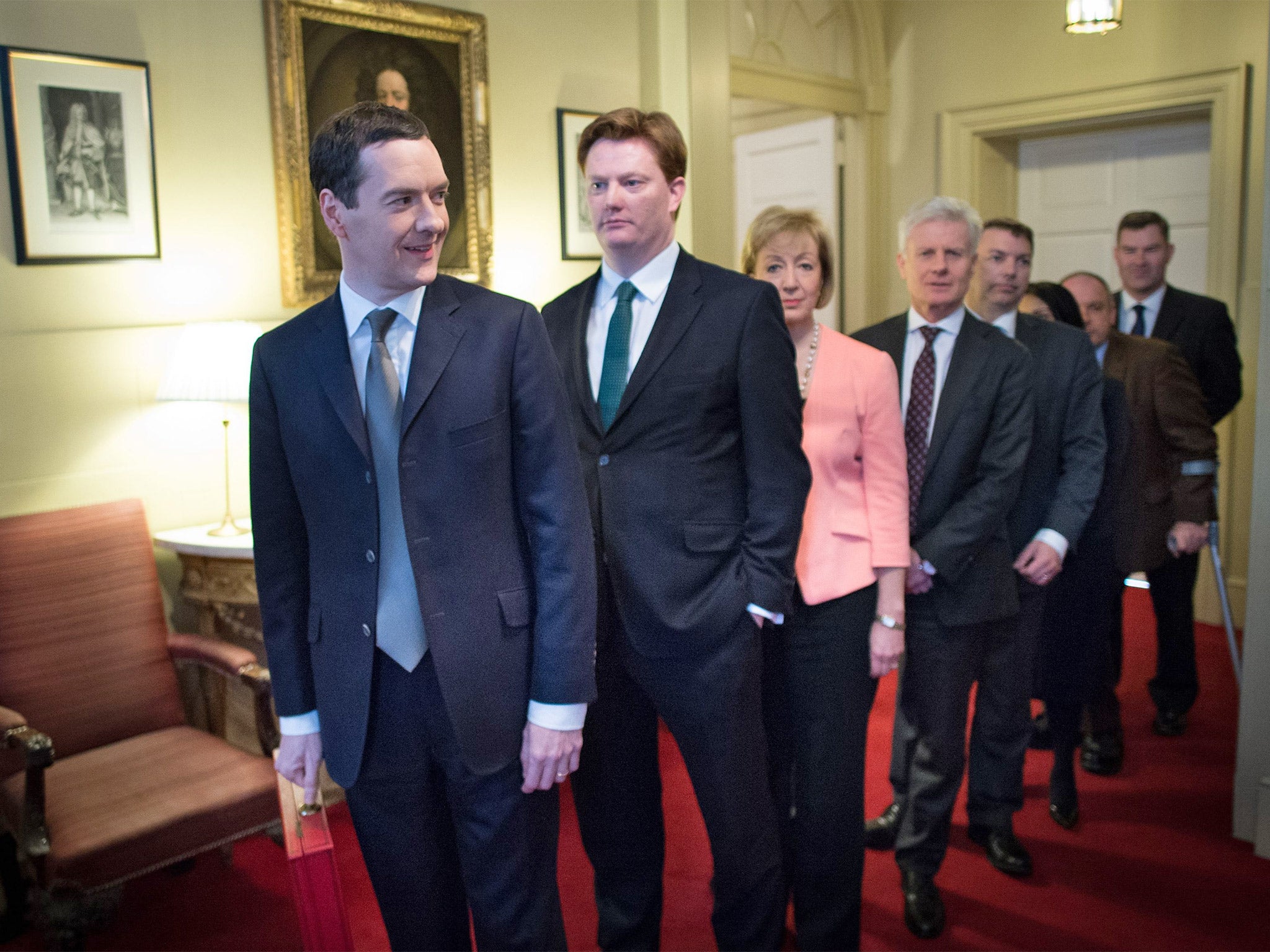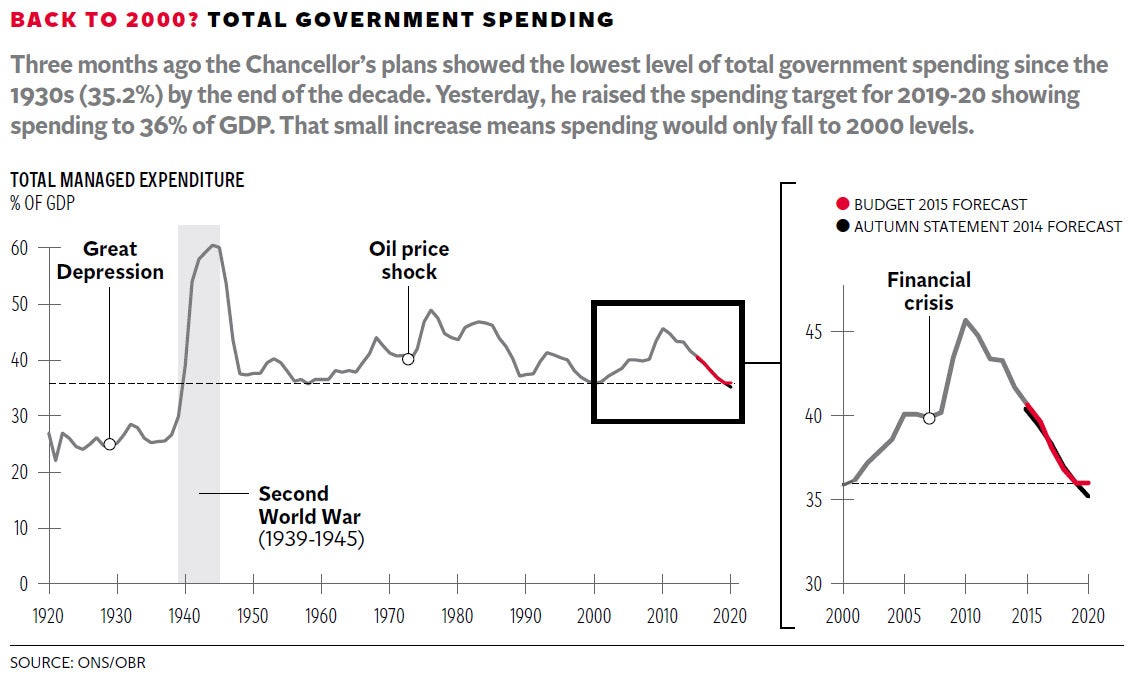Budget 2015: Behold the death of Austerity Osborne – and the birth of Generosity George
However, Osborne’s ‘reforms’ will not be adequate to meet the rising demands from a growing population


Your support helps us to tell the story
From reproductive rights to climate change to Big Tech, The Independent is on the ground when the story is developing. Whether it's investigating the financials of Elon Musk's pro-Trump PAC or producing our latest documentary, 'The A Word', which shines a light on the American women fighting for reproductive rights, we know how important it is to parse out the facts from the messaging.
At such a critical moment in US history, we need reporters on the ground. Your donation allows us to keep sending journalists to speak to both sides of the story.
The Independent is trusted by Americans across the entire political spectrum. And unlike many other quality news outlets, we choose not to lock Americans out of our reporting and analysis with paywalls. We believe quality journalism should be available to everyone, paid for by those who can afford it.
Your support makes all the difference.A single line stands out from George Osborne’s final Budget. Looking ahead to the next parliament, Osborne declared with a mischievous flourish that the levels of public spending would return to those of 2000 when Gordon Brown was Chancellor and Miliband/Balls were his advisers. The Chancellor sought to reassure and to be politically provocative: forget about all this talk of a return to the 1930s! I am taking the state back to where it was under Labour “before public spending got out of control”!
On one level Osborne was being smart, albeit in response to his own earlier misjudgement. In the Autumn Statement at the end of last year he sought to be stringently austere, partly to trap his opponents into opposing his plans so he could make claims about “Labour’s tax bombshells”.
As with quite a lot of Osborne’s tricks he became the main victim – with the Office of Budget Responsibility pointing out that the proportion of spending from the state would return to 1930s’ levels. Osborne had every right to feel aggrieved when the OBR’s assessment conjured up bleak images of The Road to Wigan Pier. Such images were a distortion. The 1930s comparison was a red herring then and is now. The significant comparison is the one that Osborne chooses to cite.
In 2000 Brown might have been Chancellor, but at that stage he had stuck to the spending plans inherited by the previous Conservative government. The outgoing Chancellor, Ken Clarke, had described those spending levels as “eye-wateringly tight” and later admitted he would not have kept to them if he had still been in the Treasury.
It was only after 2001 that Labour started to increase spending significantly. The cash was so urgently needed that former Conservative Health and Education ministers told me at the time they fully supported the higher spending. Subsequently David Cameron and Osborne claimed they supported the higher spending levels too.

Now Osborne suggests this was the period when spending went out of control. No doubt some of the cash was wasted and anyone who has worked in an institution with guaranteed income, from BBC to NHS, knows there is scope for efficiencies. But equally no-one would want to return to the squalor of Third-World public services that afflicted the UK up until 2001 when the improvements began to take shape.
Osborne claims that “reforms” can maintain the quality of public provision. Even if these unspecified magical potions are effective they will not be adequate to meet rising demands from a growing population, in particular a growing elderly population. His vision of deep cuts speedily implemented is the main divide with Labour, the Liberal Democrats, the SNP and the Greens. He might have blurred the vision a little with plans for sudden higher public spending at the end of the next parliament, but during the first few years the state would shrink.
Politically Osborne made a wise decision to avoid headline-grabbing surprises. Instead he sought to challenge the electorally fatal perception that he and his party care only for the rich in London and the South-east. There were references to Manchester, West Yorkshire, the North Sea, those on low incomes, first-time buyers and elderly savers. Osborne wants to be seen as the one-nation Chancellor representing a one-nation Conservative party.
Yet in spite of the growing economy and Osborne’s slight retreat in relation to future austerity, Ed Miliband had the space to deliver an effective response. Miliband performed abysmally a year ago, a performance that intensified internal unease about his leadership. Yesterday he was confident, authentic and made substantial points linking the small-state Thatcherite instincts of the current Conservative leadership with policies that have failed to deliver a productive, balanced economy and public services that meet modern demands.
Although Osborne paraded some positive economic statistics, Miliband was also able to point out that the Chancellor has failed to meet his original objective to wipe out the deficit in this parliament. Miliband proved that he too will have pre-election ammunition.
Anyone wondering why the election appears to be so close need look no further than Osborne’s speech and Miliband’s response. A Chancellor claiming to speak for the nation at a point when the nation is fractured to such an extent that several mini elections are being contested – and a Labour leader who once claimed to lead “one-nation Labour” but now faces a wipe-out in Scotland. After a pre-election Budget, the election still looks close.
Join our commenting forum
Join thought-provoking conversations, follow other Independent readers and see their replies
Comments